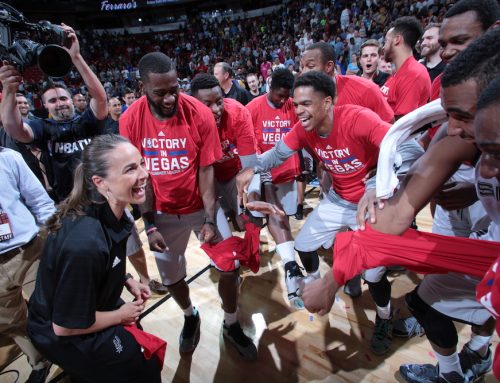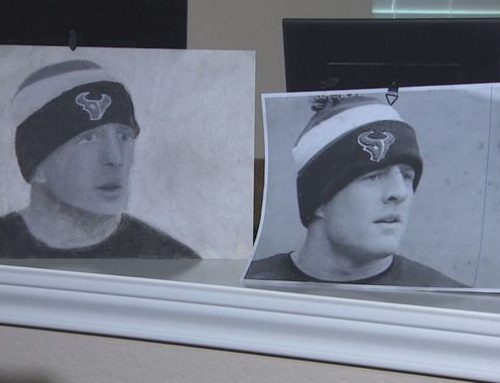via www.nba.com
DALLAS – In the next few days, the Dallas Mavericks will become the first team in the NBA to have their players wear black, digital wristwatches that don’t tell time.
The watches will tell when the players are sleeping, and for how long and how deeply they’re doing so. The collected data will quantify how fatigue from training, competing, travel, time-zone adjustments and other variables affect multiple aspects of game-day performance such as reaction time and readiness. The goal is for the Mavericks’ coaches and trainers to pinpoint the causes of fatigue, both team-wide and individually, and adjust travel schedules and training regimens to ensure players get proper sleep.
It’s not just telling guys to get their eight hours of shut-eye, but rather scientifically guiding them.
The watch, called Readiband and created by Vancouver-based Fatigue Science, is the latest technology to enter the burgeoning sports science arena in the NBA as teams search for untapped advantages. The company is expected to officially announce its partnership with the Mavericks on Thursday.
“There’s two sides to it: part of it is just working with the players, just like any other fitness or conditioning aspect to a player’s career, and part of it is their education,” Fatigue Science founder Pat Byrne told NBA.com shortly after demonstrating the technology to the Mavericks earlier this week. “So If a player is sleeping six hours a night and says, ‘I feel fine,’ we can actually say, ‘we can make your reaction time better if you’re sleeping eight hours.’ We can prove it to you, we can show you.
“I told this to the Mavericks and I tell it to all the pro players that we work with: you confuse how you feel with how you can perform. Our technology will show you how your sleep will actually affect your actual performance during the games.”
A half-dozen other NBA teams contacted Fatigue Sports citing interest in Readiband. One NFL team that requested anonymity to protect its competitive advantage began using the device this season. Major League Soccer’s Seattle Sounders and the Canadian men’s national soccer team are also clients.
The NHL’s Vancouver Canucks were the first to contact Fatigue Science in 2009, desperate for solutions to sleep issues associated with having the league’s most exhaustive travel schedule. After a couple years of collecting data and implementing schedule changes, the Canucks were so impressed with the results that they purchased the exclusive rights to the technology for three years to prevent other NHL teams from obtaining it. That deal ends after this season and Fatigue Science expects more NHL teams to sign up.
“What it allows the team to do is to say, look, how long does it take players to get to sleep after games? How do naps affect their performance? Take all of that, look at the holistic view of the whole team and then they can make smarter decisions to create sleep opportunities,” Byrne said. “Teams can say, ‘we finished this road trip, let’s just fly home.’ But you can look at the sleep patterns and say, you know what, that’s not the smartest thing to do because you’ve got a game two days from now and you’re not going to recover. This allows them to make smarter decisions.”
The Canucks are wearing the watches during their current seven-game, two-week road trip. At the end of it, “team sleep data” will be collected and studied. The Mavericks will soon begin their own test period.
“We’re teaching
Previously with the MLS’ New York Red Bulls, Holsopple’s relationship with Sounders fitness coach David Tenney led him to Fatigue Science and Mavericks owner Mark Cuban backed the experiment with Readiband.
Cuban is out front in the emerging technological arms race. Dallas is one of eight NBA teams this season using GPS tracking devices developed by Australian company Catapult Sports. The beeper-sized devices are worn by players and records movement and measures workload levels. The collected data allows coaches and trainers to determine how to tailor training sessions and practices, optimize game-day performance and reduce the risk of injury due to overexertion (the NBA does not allow the devices to be worn during games).
For the first time this season, every NBA arena will be equipped with six motion-tracking SportVU cameras. The Mavericks were one of a handful of teams to dip into the technology and Holsopple said the Mavericks are discussing the possibility of marrying the SportVU cameras and Catapult’s technology.
For the Readiband to provide accurate sleep data, players must wear it, which could be tricky if some might not want to make known their nocturnal habits. Byrne, citing the last five years with the Canucks, said early tangible results typically encourage players to embrace the project: “They’ve changed the team culture so that the players actually are now conscious about how their sleep affects their performance.”
“We can really dial in on guys individually,” Holsopple said. “I think if you take a third of the team who’s going to do this thing religiously and live by it, you’re going to see improvement in their recovery and their ability to stabilize their performance day in and day out. If you take the middle third of the team, they’ll do it some, they’ll improve to a certain degree, let’s say maybe 50 percent change in what they do can make a big difference for them.
“And then if you get that bottom third, the guys who are just typically resistant to new things, even if you can get them to change 20 to 30 percent, to me that’s a victory in the first year because we’re just trying to change the culture.”
Readiband is just now breaking into the NBA, but the fatigue management technology has been utilized for years in high-risk industry such as aviation and the military.
“We’re really an industrial company and we designed this technology to save lives in mining companies, airlines and railroads,” Byrne said. “Now it’s coming down to sports.”
Byrne targeted another group ripe for his company’s fatigue analysis: NBA referees. Unlike the league’s teams, its referees fly commercially from city to city, often on tight schedules.
Now that’s a project that Cuban, an endless critic of officiating, just might add to the Mavericks’ tab.



